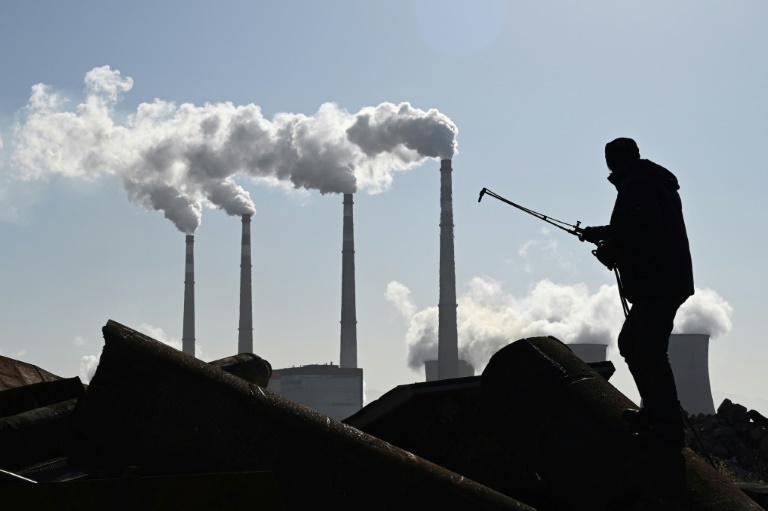China wants to use the Beijing Winter Olympics to showcase its green credentials but there are concerns over the environmental cost of a Games relying on artificial snow in one of the driest places in the country.
It is difficult to independently verify Beijing’s claims around the Games, which begin on February 4, and environmentalists told AFP they fear a backlash from authorities if they analyse Beijing’s green targets.
This is what we know:
– What is China promising? –
China has pledged to power the Games using only wind, hydro and solar energy — despite relying on coal to power nearly two-thirds of its economy.
The city of Zhangjiakou, one of the three Olympic hubs, has installed wind farms spanning hundreds of acres that can produce 14 million kilowatts of electricity — similar to the power Singapore can produce.
Authorities have also covered mountain-sides with solar panels that they say will generate another seven million kilowatts.
The Beijing Olympics organising committee told AFP that China built a “dedicated power plant that takes on power generated from renewable sources, stores it and transmits it to all venues”.
This should ensure uninterrupted power supply, it said.
But China’s economy has relied on decades of coal-fuelled growth and is still building more coal-fired power plants than the rest of the world combined.
– Will smog affect the Games? –
In an attempt to clear Beijing’s notoriously smoggy skies before the Olympics, coal stoves in 25 million households in northern China were replaced with gas or electric. Tens of thousands of factories were also fined for exceeding emissions limits.
Steel plants around Beijing have also been ordered to cut production by half.
The number of heavily polluted days in the Chinese capital fell to 10 in 2020 compared to 43 in 2015, according to the environment ministry — but the city’s air quality still regularly exceeds World Health Organization standards.
A 2015 assessment by Greenpeace said that the “biggest lesson from the 2008 Olympic Games (also in Beijing)… has been the realisation that merely moving dirty industries from Beijing to neighbouring provinces does not bring lasting air-quality improvements”.
– What about transport? –
Some 655 hydrogen buses will be used to transport athletes and officials during the Winter Games, state news agency Xinhua said.
Organisers said 85 percent of vehicles used for the Games will run on either electricity or hydrogen.
Given that only domestic spectators will be allowed to attend due to the pandemic — and even those numbers look like being very limited — flight emissions are likely to be lower than the average Olympics.
The coronavirus has also greatly reduced the number of international flights to China.
– Where will snow come from? –
The events in the parched mountains of Zhangjiakou and Yanqing, north of Beijing, will completely rely on man-made snow.
Artificial snow has been used to varying degrees since the 1980 Winter Olympics in Lake Placid, New York.
China estimates it will need around 49 million gallons of water to make artificial snow for events such as skiing and snowboarding, according to a 2019 blueprint by the country’s national economic planner.
The water would come from reservoirs in Zhanjiakou, “but would account for less than one percent of the water supply of the city”, a member of the Beijing Olympics organising committee told state-run Global Times.
So-called snow-makers say the water used to make snow contains no chemical additives and when it melts the water will naturally re-enter the soil.
– How viable are winter sports? –
The city of Beijing is extremely water-stressed, with 185 cubic metres of water per person per annum for its 21 million inhabitants — less than a fifth of the supply needed per UN standards.
When China won the bid to host the Olympics, one of the key propaganda lines was that it would help put “300 million people on the ice”.
But environmentalists say promoting winter sports that rely on artificial ice and snow could worsen the water woes.
Carmen de Jong, of the University of Strasbourg, said: “To have Games in a site or region without snow is unsustainable since it is water- and energy-intensive, damages soil health and causes erosion.
“To create events without the primary resource it depends on is not only unsustainable, it’s irresponsible.”









